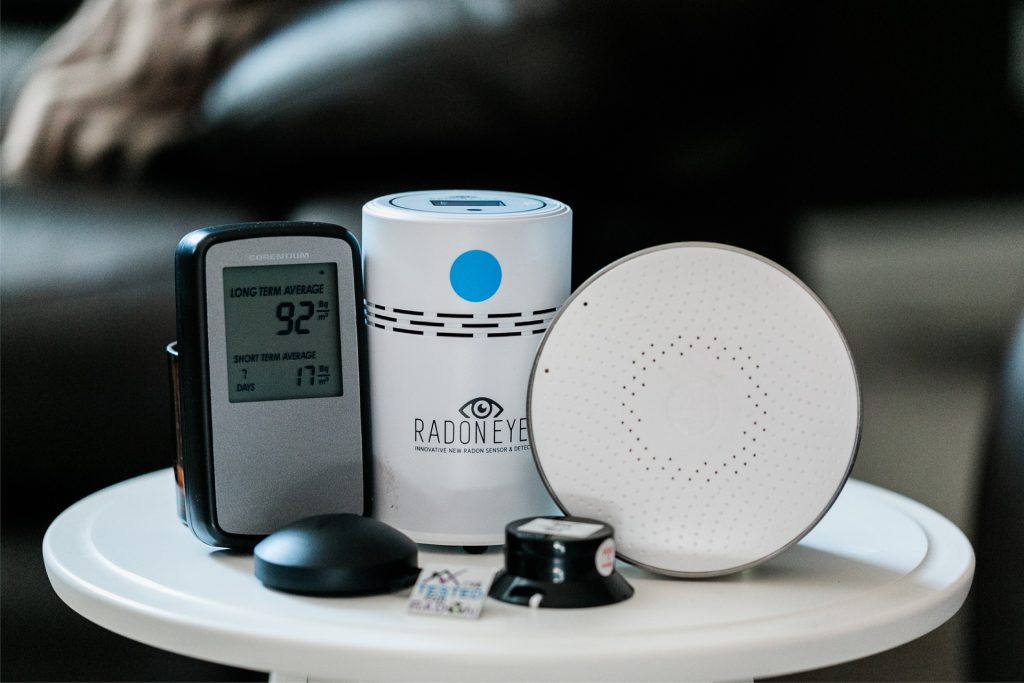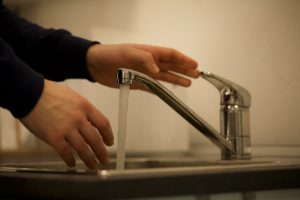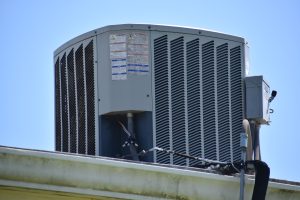Our world today is plagued by pollutants in our air. You hear about it on tv, on social media, even from your friends and family. But what about your home, have you thought about what type of pollutants and bad things you have floating around in your home? Have you ever considered purchasing an air purifier to have clean air in your home? Looked into the air purifier pros and cons? We will discuss all the good and bad things about air purifiers, so you can make the decision. To have clean air, or to leave the air alone. If you find you have more questions the professionals at Clover Contracting are always happy to help.
What is an air purifier?
In the simplest form, it is a device that pulls air into itself, runs that air through a filtration device, and then pushes the air away from itself. There are cheap options that use subpar filters to quality ones that use true HEPA filters and carbon pre-filters. These air purifiers clean everything from bacteria and mold to pollen and pet dander out of your air. Their sole purpose is to clean the air and provide you with a cleaner and safer environment to breathe in. But every air purifier has pros and cons. Clover Contracting is always here to help our customers select the best options and answer questions about the best air purifier.
Filtered air purifiers
If you purchase a standalone air purifier, a true HEPA filtered unit is good. Ensure that it says true HEPA, not HEPA-like, or a type of HEPA. Purchasing one with a true HEPA filter and a carbon pre-filter is an even better option, as it can trap the particles more efficiently being spread across two filters, instead of it all gathering on one.
It is not recommended to install a HEPA air filter in your HVAC system and assume it will do the same thing. Most HVAC systems are not equipped to pull air effectively through such a dense filter which will cause your unit to be far more inefficient. However, buying an air purifier designed to work with a HEPA filter is a good option. The filtered air purifier pros and cons are listed below.
Pros
· They can remove 99.7% of particles down to 0.3 microns
· They are more affordable than other options
· They have lots of different options
· Some of them will have a UV pre filter light installed
Cons
· Require some maintenance
· Filters will need replaced regularly
· Does not filter odors
· The smallest particles will still be able to get through the filter
UV light purifier
You may have never heard of a UV light purifier before now. A UV light purifier is a bulb that produces a UV light, has been proven to kill bacteria, germs, mold spores, and more. The UV light that is produced is most commonly UV-C light. Which performs ultraviolet germicidal irradiation, which breaks the germs and bacteria’s DNA apart. Like how the sun affects our skin cells. Here we include a list of pros and cons of air purifiers using UV light.
Pros
· Targets the microorganisms
· Excellent choice for medical environments
· Works alongside other filtration systems, such as HEPA
· Kills the organisms in the air, so they do not stay trapped in the filter
Cons
· The effectiveness is debated on
· It could potentially produce ozone
· May not be as effective as a HEPA filter on its own
· Does not do a great job at reducing odors
Adsorbent air purifiers
Adsorbent air purifiers work a little differently than the other filter systems that we have discussed. Adsorbent air purifiers will attract the pollutants and contaminants to itself through a chemical process called adsorption. There is also a physical version of adsorption that does not use chemicals. But normally it will be the chemical version of adsorption that is used. Carbon is a common compound for this filter style, it is chemically charged, and as the air passes by its adsorption takes place and it pulls the contaminants into the carbon filter. Here are the pros and cons of air purifiers using adsorbent air products.
Pros
· There are no harmful by-products
· Can remove odors that other filters have difficulty with
· Can be added to other filters, like in front of a HEPA filter
Cons
· Cannot remove the airborne particulates
· Often sold with a HEPA air purifier, not as a standalone unit
Ionic purifier
Ionic purifiers gained a lot of popularity in the late nineties and early two thousand. However, this was quickly shifted over to make room for the HEPA filter craze. The decline of the ionic purifiers was largely because it could potentially cause ozone to build up in your home. This can not only be dangerous to you, but it can also be dangerous to certain species of pets.
Ionizers are commonly known to put out negative ions that connect themselves to the pollutants and contaminants in your air. Once the negative ions connect themselves to these things, they become heavy and fall, and are hopefully pulled through a quality filter so that they will no longer be in the room.
Ionizers commonly force these particulates to the ground by adding negative ions. What if they are not pulled through a HEPA filter, or a good quality air filter? Then they stay on the floor. Once you walk through the room, or your pets or kits run through, they are back up in the air waiting for you to breathe them in.
Electrostatic precipitators have become more popular than ionizers because they work on a similar concept as an ionizer, but they have plates that the charged particles will stick to. So instead of having a floor full of negative ionized particulates, you have a couple of plates that you will have to wipe off occasionally for it to continue cleaning your air. Let’s go over some ionic air purifier pros and cons below.
Pros
· They are low maintenance
· Much quieter than other options
· Can be paired with other filter options
Cons
· Less effective than a HEPA filter
· May produce ozone (California has banned the sale of ionizers)
· Can injure certain pet species if you have them
This sums up the pros and cons of most air purifier types you’ll find on the market. If you’re still looking for help with finding the right air purifier for you, contact us today, and we’d be more than happy to help.




